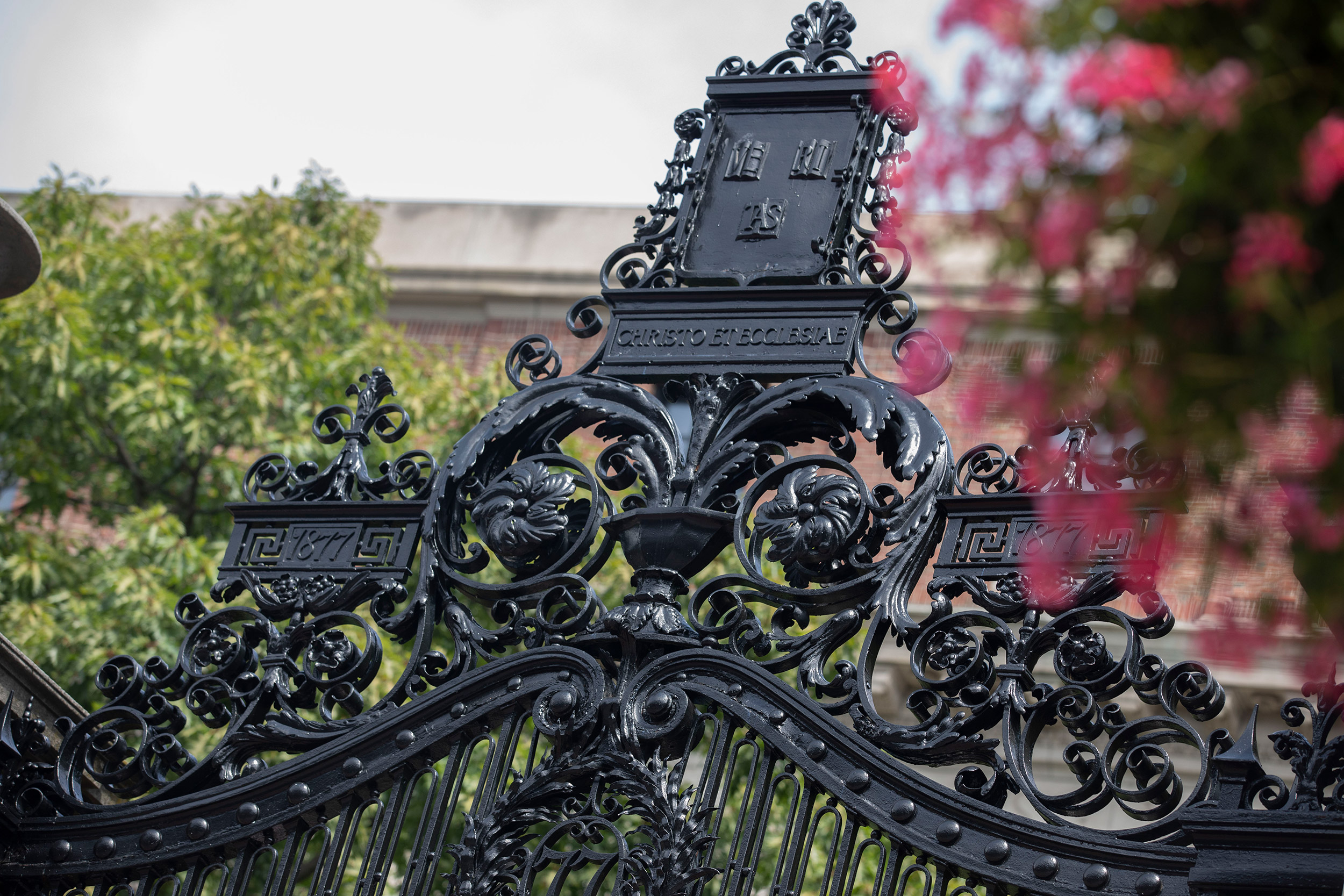
Harvard Yard gate in springtime.
Kris Snibbe/Harvard Staff Photographer
College expands undergraduate cohorts invited to campus for spring
After successful fall, administration plans for 3,100 students, the maximum density of single bedrooms
Harvard College will expand the number of students invited to learn from campus this spring after a successful fall semester. All seniors as well as juniors who completed the fall semester are among the invited cohorts, along with students who live four or more hours from the Eastern Standard Time zone and those who need to be on campus to maintain academic progress, Harvard announced today.
President Larry Bacow, Edgerley Family Dean Claudine Gay of the Faculty of Arts and Sciences (FAS) , and Danoff Dean of Harvard College Rakesh Khurana co-authored a message to undergraduates, faculty, and staff detailing the plan, which they said can allow for maximum campus density at 3,100, the number of single bedrooms on campus. Juniors who took leaves of absence in the fall may also apply for housing, and will be granted accommodations based on availability.
“While determining how many students would be invited to be in residence was driven in large part by public health considerations, the decision of which students to invite was guided entirely by our commitment to student academic progress,” they wrote. “With many engaged in senior theses or other capstone projects, the academic priority of seniors has been clear for some time. What was revealed through consultation with faculty over the fall was just how vital the junior year is in setting the stage for those activities and the necessity of access to campus-based academic resources to support the launch of independent research. We also learned from our students in distant time zones about the challenges they face in their access to synchronous learning and other real-time academic engagement, such as office hours, study groups, and peer advising.”
As it was in the fall, all instruction will be remote, even for those on campus. The message also confirmed the plan for sophomores to continue to study remotely. They are invited to take two free classes on campus through Harvard Summer School, as announced previously.
“We know that this news will be particularly difficult for sophomores and their families as they confront the reality of a full academic year away from campus,” wrote Bacow, Gay, and Khurana. “We share their disappointment and are eager to bring sophomores, and our full student community, back as soon as possible.”
In a continuation of support students received this fall, aided students who do not return to campus will receive a $5,000 remote room and board allowance in their financial aid award to support studying at home. The spring term-time work expectation for all aided students has also been eliminated.
“This extraordinary measure recognizes the current challenges of finding work and the public health considerations of work that is not remote,” they wrote. “This does not mean that students cannot or will not choose to work, but rather that there is no expectation of a work contribution to meet their cost of attendance.”
The spring announcement comes as the global pandemic continues to surge across the country. As of Monday, Massachusetts had recorded 218,329 positive cases and 10,512 deaths.
“Careful campus planning is essential, but we realize that our institutional interventions are only part of the picture. Just as importantly, our spring plan must be ready to respond to this pandemic’s unpredictable course,” they wrote. “For that reason, our spring plan is just that, a plan. If circumstances continue to deteriorate across the nation, we are prepared to respond quickly with appropriate contingency plans that would reduce expected campus density before the start of the spring term.”
Bacow, Gay, and Khurana reminded invited students to consider the challenges of living in a very different residential experience — and to consult the updated Community Compact — ahead of making their spring decision. Students must comply with state and institutional health practices, which include testing, wearing masks, and strict limits to social gatherings. The College vowed to move “as quickly as public health circumstances allow” to give students access to the necessary academic facilities, such as research labs and libraries.
Spring classes will begin Jan. 25. Spring break has been replaced with five separate wellness days distributed throughout the semester, and the message asked faculty to adjust their syllabi to reflect a true break for students.
All undergrads must submit their intent to attend by Dec. 14. Details such as move-in and move-out dates will be announced at a later time.




